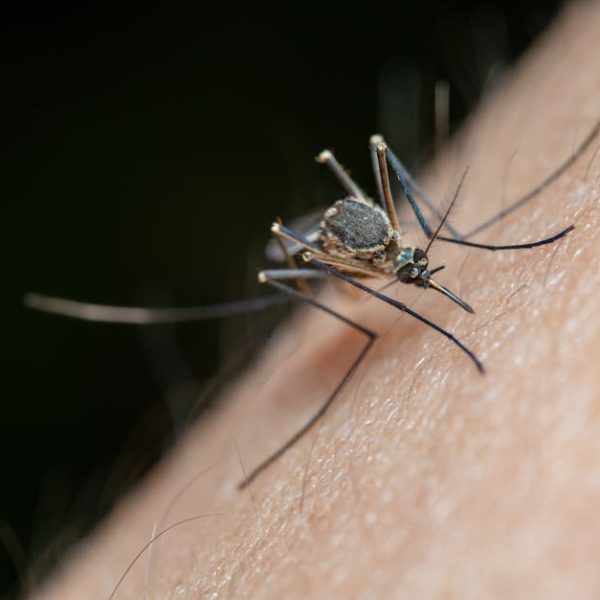Let’s dive into the fascinating and often overlooked role of baking soda, a regular household staple that can double as a natural fertilizer to stimulate plant growth under the right conditions.
Understanding the Role of Baking Soda in Plant Growth
Baking soda, or sodium bicarbonate, may seem like an odd companion for your plants. Still, in small amounts, it can boost your garden’s health and even enhance the visual appeal of your plants. But how does this happen?
The secret lies in the chemical composition of baking soda. Its high pH value means it can alter the pH of the soil, transforming a potentially acidic environment into a more neutral one. Many plants thrive in such neutral conditions. Furthermore, its carbonate content acts a source of carbon dioxide, a crucial element for plant photosynthesis. Here’s a quick breakdown:
– High pH value: This makes the soil less acidic, creating a favorable environment for most plants
– Carbonate content: Supplies plants with carbon dioxide, enhancing their photosynthesis process
– Sodium content: Traces of sodium can stimulate plant growth, but too much can be harmful
Pros and Cons of Using Baking Soda as a Fertilizer
If used appropriately, baking soda can be a handy, cost-effective fertilizer. Here’s why some gardeners swear by it:
Pros:
– Pest Control: Baking soda can deter garden pests like aphids and mites.
– Enhanced Greenness: Improves chlorophyll production, leading to greener, healthier plants.
However, baking soda should be used sparingly, as it can have downsides. Some of the cons include:
Cons:
– Potential Damage: Overuse can harm plants, potentially causing sodium toxicity.
– Soil Imbalance: Excessive usage might lead to a salt build-up in the soil, upsetting its balance.
Steps to Use Baking Soda as a Natural Fertilizer
Wondering how to get started with gardening using baking soda? Follow these simple steps:
Step One: Dissolve a small amount of baking soda (around 1 teaspoon) in 1 liter of water. This mixture is your baking soda fertilizer.
Step Two: Try the solution on a small portion of your garden first. This will help you ensure it doesn’t harm your plants.
Step Three: Once you’ve confirmed it’s safe, go ahead and apply the baking soda solution to your plants using a spray bottle or watering can.
Remember, less is often more with baking soda. It’s better to underapply than overapply.
Specific Application Cases for Baking Soda Fertilizer
Different plants tend to have unique requirements. Here are some ways you can use baking soda for specific plants:
– Roses may benefit from a light application of baking soda, as it can help combat fungal diseases.
– Tomatoes might appreciate its pH-altering abilities, as they prefer slightly alkaline soil.
– For orchids, a light spray can help fend off surface fungus.
Alternatives to Baking Soda for Natural Fertilizers
While baking soda can be beneficial, remember that it’s not the only natural fertilizer out there. Here are some alternatives, each with its own merits and drawbacks:
– Compost: A classic organic fertilizer, rich in nutrients but requires time to produce.
– Worm Castings: Excellent for soil health but may be harder to source.
– Bone Meal: High in phosphorous, good for root growth but can alter soil pH.
Don’t be afraid to experiment to find the best solution for your individual garden. But remember – irrespective of the fertilizer used, your plants will always appreciate regular care and attention. Happy gardening!
Understanding the Role of Baking Soda in Plant Growth
Ever wondered how a common kitchen item like baking soda could turn your gardening game up a notch? Well, baking soda, also known as sodium bicarbonate, has some surprising benefits for your plants when used correctly. This powdery compound has a high pH value and contains carbonate, properties that allow it to influence soil conditions, thereby potentially promoting plant growth.
For instance:
- With its high pH value, baking soda can help neutralize acidic soil conditions, thereby creating a more balanced environment for plants to flourish.
- The carbonate content in baking soda acts as a source of carbon dioxide, aiding in the photosynthesis process that plants require for growth.
- The small traces of sodium in baking soda can also boost plant development, unless used excessively as this can prove counterproductive.
Pros and Cons of Using Baking Soda as a Fertilizer
Like all things, using baking soda as a fertilizer has its ups and downs. Let’s take a look at the good and the not-so-good.
Pros:
- Baking soda can act as a natural deterrent against pesky garden critters like aphids and mites. Talk about a natural pesticide!
- By enhancing the photosynthesis process, baking soda can lead to greener, more vibrant foliage. Your plants could be the envy of the neighborhood!
Cons:
- Overzealous use of baking soda can lead to sodium toxicity, damaging your plants instead of nourishing them.
- High sodium levels from frequent application can cause salt buildup in your soil, upsetting its balance and making it less plant-friendly.
Steps to Use Baking Soda as a Natural Fertilizer
Harness the power of baking soda for your plants with these straightforward steps:
Step One: Mix roughly a teaspoon of baking soda into a liter of water. This solution is your DIY baking soda fertilizer.
Step Two: Before going all-in, test this concoction on a small, inconspicuous patch in your garden. Monitor this area to ensure the mixture has no adverse effects on your plants.
Step Three: After the test phase, you can gradually introduce the baking soda solution to the rest of your garden. Apply it using a spray bottle or watering can for easy distribution.
Keep in mind, when it comes to using baking soda as a fertilizer, less is more. An over-application can do more harm than good.
Specific Application Cases for Baking Soda Fertilizer
Remember, different plants have different needs! Here’s how you can use baking soda with certain plant types:
- Roses: A light sprinkle of baking soda can help fend off fungal diseases.
- Tomatoes: Thanks to its pH-altering capabilities, baking soda can create the slightly alkaline soil environment that tomatoes favour.
- Orchids: Orchids can benefit from a light spray of the baking soda solution to combat surface fungi.
Alternatives to Baking Soda for Natural Fertilizers
If the idea of using baking soda as a fertilizer isn’t quite your cup of tea, there are other natural alternatives with their own advantages and disadvantages. Here are a few examples:
- Compost: A timeless and versatile organic fertilizer that’s rich in nutrients. The downside? It takes time and effort to produce at home.
- Worm Castings: These provide excellent benefits for soil health, but sourcing them can be a challenge.
- Bone Meal: This is a fantastic source of phosphorus, which is great for root growth. However, it can significantly alter soil pH, something to consider based on the type of plants you have.
Feel free to experiment to find what works best for your unique garden and remember, regardless of the fertilizer you choose, regular care and attention are the best ways to ensure your plants continue to flourish. Happy gardening!
Key Takeaway:
- Baking soda can nourish plants and improve soil conditions due to its high pH value and carbonate content that aids photosynthesis. The sodium content, though, can be detrimental when overused.
- Proper application of baking soda as a fertilizer can deter pests and enhance plant greenness, but too much can hurt plants and cause soil imbalance.
- Baking soda generally works well with roses, tomatoes, and orchids, but care and moderation should be observed and different plants have different tolerances and requirements.
- While baking soda can be beneficial, other natural alternatives like compost, worm castings, and bone meal are also worth considering.
Don’t let gardening intimidate you. Something as simple as baking soda can be a great asset when used wisely. It’s all about understanding your plants, their needs, and the earth they grow in. Stay curious, keep experimenting, and don’t forget to have fun. With patience and care, your beautiful, flourishing garden is within reach.
FAQs
Q: Can I use baking soda on all types of plants?
A: While many plants may benefit from a light application of baking soda, each plant has unique requirements. Thus, what works for one might not work for another. Be sure to research what’s best for your specific plants.
Q: How often should I apply baking soda as a fertilizer?
A: There isn’t a one-size-fits-all answer to this. It largely depends on the plant and soil conditions. However, it’s important to remember that with baking soda, less is often more, to avoid negative side effects.
Q: Can I combine baking soda with other fertilizers?
A: Yes, you can combine baking soda with other fertilizers but do so carefully and sparingly. It’s important not to overload your plants with multiple substances, which could potentially harm them.
Q: Does baking soda also work as a pesticide?
A: Yes, baking soda might help deter certain garden pests like aphids and mites. However, remember that its main purpose is as a soil amendment rather than a primary form of pest control.
Q: Can I use baking powder instead of baking soda as a fertilizer?
A: Baking powder and baking soda are not the same and shouldn’t be used interchangeably. Baking soda (sodium bicarbonate) has specific properties beneficial for certain plants, which baking powder doesn’t.
Make sure to share this article with fellow green thumbs and continue exploring our posts for more gardening insights and tips!






